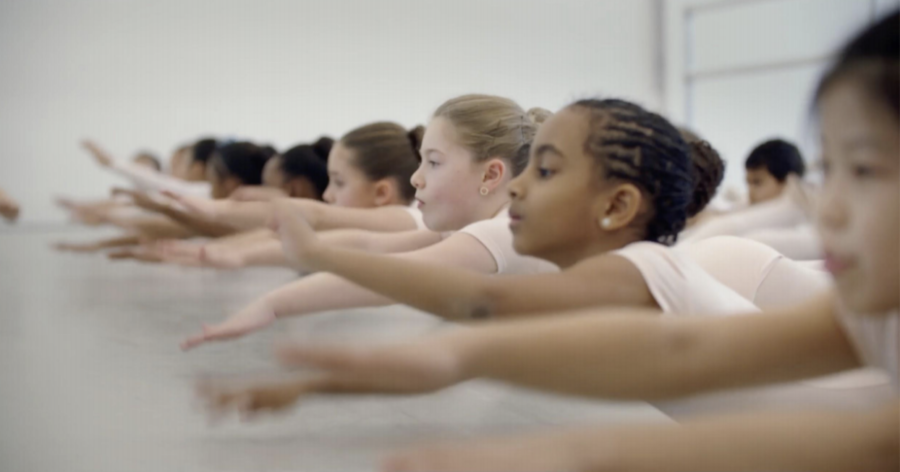Chasing Childhood Calls Out Excessive Parenting, Praises Childhood Freedom
The documentary Chasing Childhood, directed by Eden Wurmfeld, OC ’91, and Margaret Munzer Loeb, depicts the negative impact that competition and overscheduling can have on today’s children.
Editor’s note: This article contains mentions of suicidal ideation in children.
Eden Wurmfeld, OC ’91, and Margaret Munzer Loeb’s new documentary Chasing Childhood explores modern childhood and the ways that overparenting can damage children’s mental health. Interviewing teachers, child development experts, families, and plenty of children, Wurmfeld and Loeb provide a gritty look at the reality for today’s kids. The film presents the unfiltered reality of “helicopter parenting,” showing that a lack of freedom for children has led to overall increases in childhood anxiety, depression, and even suicidal ideation.
“I thought a lot about not wanting to typecast or say that any one person or family represented childhood,” Wurmfeld said. “It was challenging. It was one of the reasons why in the movie you hear from a chorus of young voices.”
One of the films’ subjects is the Eason family. Through documenting their struggles, the film depicts the ways that the academic and extracurricular pressure placed on children can permeate through an entire home. Genevieve, the mother of the family, works with the Free Play Matters Task Force that focuses on providing kids with playtime instead of organized instructions.
“I hope that viewers can find something relatable in our family’s story and in my experience as a parent,” she said. “Hopefully people can see that we have struggled, we’ve had hard times, and that we have tried to learn from those experiences. … We are living through a moment that is really perfect for this kind of reflection.”
Former roommates Wurmfeld and Loeb found the inspiration for Chasing Childhood in their own conversations about the difference between their childhoods and those of their children.
“We had an idea for what we wanted the themes of the film to be and what the film should be about, but we did not have a story,” Loeb said. “We had to reverse engineer the making of the film in a way that was different from how I approached other projects.”
For Loeb and Wurmfeld, the many voices highlighted allowed them to accurately portray the far-reaching childhood experiences they observed.
“It wasn’t just us and our perception,” Wurmfeld said of their early research. “It wasn’t just New York City where we had been born and raised and where we were actually raising our own kids. It was a national [issue] … that kids weren’t actually thriving in this new way that childhood looked.”
While the film was shot before the COVID-19 pandemic began, the last year of quarantine provided a valuable moment for many families to take a break from their normal routines to consider the status quo of their lives.
“We thought a lot about how childhood has shifted somewhat in the crisis of the global pandemic,” Wurmfeld said. “In the lockdown in New York City in the spring, I was sitting in my office with the windows open and I heard more kids playing. That was kinda the soundtrack of my days in the spring. I had never heard that before. It was because all the after-school activities were canceled, the school was canceled, and kids were just around.”
While the sounds of children playing were the score to Wurmfeld’s days, composer David Cieri knew that the soundtrack would play a big part in carrying Chasing Childhood’s story, too.
“That’s a delicate sort of thing, to find music that is at once playful but [also] saying if parents are too watchful, not allowing our kids to fully live even in the dangers, in all risks, there might be a negative side effect,” Cieri said. “To find that little balance again between play and slight, long-term danger was specific, unique — something I had never done before.”
While the film focuses on today’s children and their parents, the themes of overscheduling and competition for children will also resonate with college students. Growing up after the implementation of the “No Child Left Behind Act” in 2001, current Oberlin College students who attended schools in the United States may relate to the kids in this film. Seeing seven-year-olds stressed, exhausted, and put in heavy competition with each other might be jarring to some older audiences. For our generation, that pressure to “build a solid resume” or “get into the right college” can feel eerily familiar.
Chasing Childhood will be available to be streamed through the remote Cleveland International Film Festival on April 8, as well as at multiple other festivals around the country. Community screenings can be requested by visiting the Chasing Childhood website.











